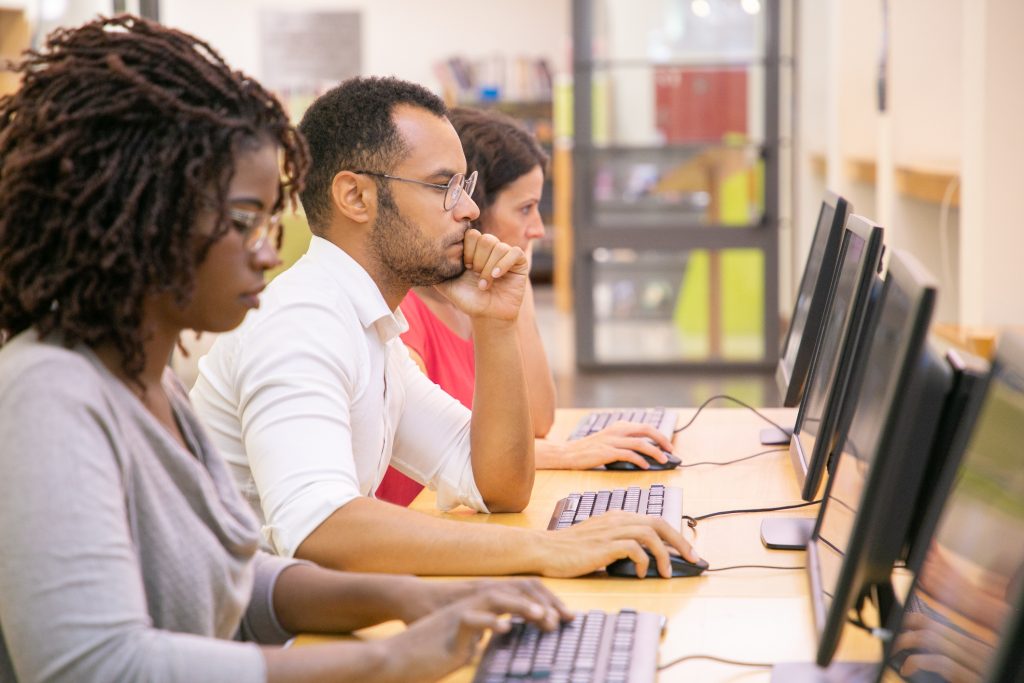How Do You Prepare for the Certified Surgical Technology Exam?
Published - October 16, 2024


Table of Contents
Surgical technologists are essential members of any surgical team. They work alongside healthcare professionals, including nurses, surgeons, and other technologists. The surgical technologist may be present in a surgical room before, during, and after surgery. To become a surgical technologist, you must complete a higher education program and pass the Certified Surgical Technology exam.
What is On the Certified Surgical Technology Exam?
Certain skills are required of certified surgical technologists, and these skills are tested in the Certified Surgical Technology (CST) examination. You will need to be detail-oriented, a good communicator, and physically active in your work to ensure the surgeries you assist with go well. You must also understand basic health science topics, like anatomy and physiology, microbiology, and surgical pharmacology. Some of the topics you will be tested on include:
Providing Preoperative Preparations
One key role of surgical technologists, tested during the CST exam, is preoperative tasks. They include proper hand washing, equipment checking, and maintaining surgical room sterilization. During the CST examination, you need to answer questions related to these tasks and demonstrate critical thinking skills by answering questions about individual patient care. For example, how to prepare an operating room for a bariatric patient.
Surgical technologists must completely prepare a surgical room before any operations begin. They may also need to assist in preparing a patient for an operation. For example, by applying compression devices to the patient. Once the patient is brought into the operating room, you will work with a team to position the patient and sterilize the operating areas of the body.
Assisting with Operations
Surgical technologists must maintain the equipment for a surgical procedure during an operation, Therefore, they need to perform tasks such as labeling medications, sterilizing surgical tools, and applying devices such as casts and braces. You must also know how to identify types of operative incisions and instruments.
While in an operative setting, you must communicate well with other surgical team members to ensure the utmost safety of a patient. You may also need to refer to surgical notes or patient records to assist your team members to make crucial decisions during an operation. You may also help prepare sutures or grafts, irrigate operative areas, and take action during emergencies. It’s essential, too, that you observe the status of a patient during surgery by monitoring the patient’s blood loss and the patient’s physical position.
Providing Postoperative Care
After a patient’s operation, you must remove equipment and devices from the patient and dispose of or transfer them using the general standard precautions used by all healthcare professionals. You may also need to work with other surgical team members to clean the patient and transfer the patient to a recovery area. Then, you are tasked with cleaning the operation room and restocking or organizing the room’s equipment. In the CST exam, you must answer questions about proper sterilization techniques and the reporting process during the postoperative time.
Completing Administrative and Other Duties
Another part of your job is creating, following, and revising surgeon preference cards. You may also need to mentor new personnel in and out of the operating room and assist in coaching future surgical technologist students. Additionally, you need to know the protocols used in disaster situations.
Understanding Healthcare Science
While a large portion of the CST exam covers the main tasks surgical technologists complete daily, another section covers essential health science topics that you reference on a regular basis. These topics include anatomical and physiological systems, their relation to surgical procedures, and primary surgical pathologies, such as abnormal anatomies. Also covered in the exam are microbiology topics, like the classification of microorganisms, the stages of wound healing, and the standard infection control procedures.
Another topic covered in the CST exam is surgical pharmacology, which includes the weights, measurements, and conversions of common medications used in surgeries. You may also be tested on common complications that arise with medications and anesthesia used in operations, like malignant hyperthermia. Plus, you need to know the maximum dosages for common operative medications, such as xylocaine, marcaine, and heparin.
How Do You Prepare for the Certified Technology Exam?
To prepare to become a surgical technologist, you must study the questions and topics the CST exam covers. You will also need to complete an accredited surgical technology program before taking the exam, and it’s important to note that the Surgical Technology Program at CBD College will teach you the skills and knowledge you need to prepare for the test.
Step 1: Complete Your Surgical Technology Program at a CBD College
CBD College offers a great Surgical Technology program that will teach you what you need to know to do well in the Certified Surgical Technologist exam. Did you know that you can complete this program in as little as 14 months? You will practice clinical skills in a mock operating room, allowing you to learn with hands-on experience. You will be required to complete a set number of clinical hours in a natural operating environment, working alongside experienced surgical technologists and other healthcare professionals.
Step 2: Take Practice Tests
The National Board of Surgical Technology and Surgical Assisting (NBSTSA) offers computer-based practice tests for the official CST exam for $40 on the NBSTSA website. While the questions found in the practice exam are not the same as those on the official exam, they are designed to be similar and give you a resource to test your knowledge. After taking a practice test, you can evaluate yourself and see what questions you answered incorrectly, giving you an idea of the areas you may need to study more thoroughly.
Step 3: Follow Important Exam-Taking Tips
Aside from taking a practice exam, you can prepare for the day of your official CST exam by preparing yourself physically and mentally. It also helps to schedule your exam well in advance to ensure you have a spot on the test day and to know how much time you have to study beforehand.
 Additional Tips to Prepare for the CST Exam
Additional Tips to Prepare for the CST Exam
Here are some standard tips to help you prepare for the CST Exam.
Study with Flash Cards
Whether you decide to take a practice test or not, you can also quiz yourself with flashcards to prepare for your CST exam. You can create your own flashcards on paper or with an online study tool, focusing on CST exam topics like anatomy and microbiology. You may also find pre-made flashcards for studying online, like those made by other users on a site like Quizlet. If you have a textbook made for surgical technology, you can highlight information throughout the book that you need help remembering and create flashcards based on that information.
Prepare Yourself Physically for Test Day
Sleeping well, staying hydrated, and eating right are all important things to do the day before and the day of any test. You should get enough sleep the night before your test, drink plenty of water, and avoid sugary or fatty foods. If you have trouble sleeping, it’s best to give yourself extra time to fall asleep the night before, and you should put all electronic devices away at least 30 minutes before bed.
Eating breakfast before taking an exam will improve your performance because an early meal provides slow-releasing energy throughout your day. The best breakfast foods are those high in carbohydrates, like whole grain bread or oatmeal, whether your exam is scheduled in the morning or later.
Show Up Early and Relax
The best thing you can do for yourself when you have an exam is to show up for the test early, even if you don’t want to take extra time to study before the test. That way, you won’t feel rushed when beginning the test, and you may take a minute or two before the exam starts to relax. You can also stop to meditate or stretch before walking into the examination room to relax your muscles, especially since tense muscles are linked with stress hormones.
Surgical Technologist Program
In our Surgical Technologist Program, you can get trained in as little as 18 months, working with doctors, nurses, and anesthesiologists. Train on your feet with professionals in our state-of-the-art mock surgery centers and get real on-the-job experience through our extensive network of clinical externship sites so you can be ready to tackle the field after you graduate.
Contact us now to learn more.
 Additional Tips to Prepare for the CST Exam
Additional Tips to Prepare for the CST Exam